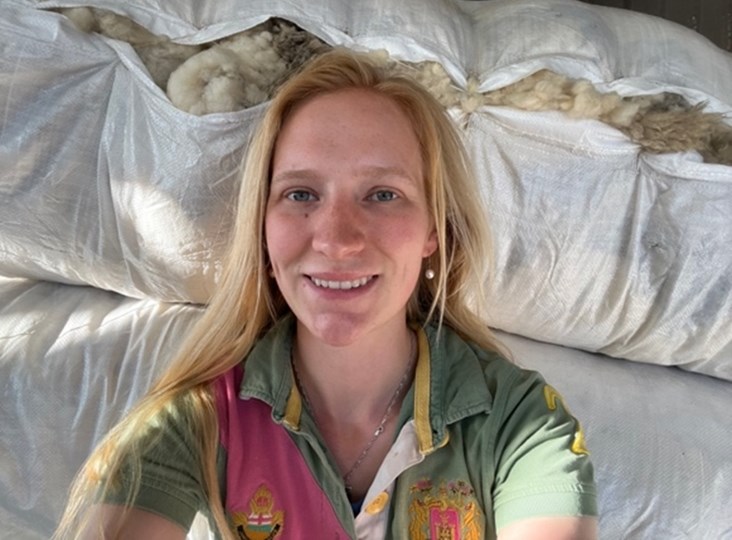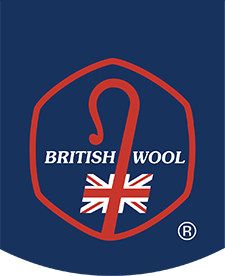Tilly Abbott announced as England Training & Development Programme winner
Tilly Abbott from Suffolk has been announced as the winner of British Wool’s 2023 Training & Development Programme in England.
Last week, British Wool met with Tilly to find out more and discuss her achievement.
Tell us about yourself
I’m 22 and on my placement year whilst studying at Hartpury University in Gloucestershire. I never saw myself going to university as I wasn’t academic at school but once I found my passion within farming I have never looked back. I’ve truly loved learning everything and anything I can about both livestock and arable systems.
I don’t come from a farming background, but I was brought up around the industry. I knew I always wanted to work with animals and was on track to become an apprentice zookeeper before deciding to go to university. However, I’m so pleased I chose my current path, even if it was on a bit of a whim. As I’m sure many people do, I found myself elbow-deep in sheep very quickly!
After completing a lambing placement whilst at college and loving every minute I started contract lambing, within the first-year lambing around 5,000 ewes from Berkshire to Scotland, and I’ve been learning new skills ever since. Shearing was introduced one day, and I have loved spending time getting faster whilst also (hopefully) neater. Contracting whilst I’m studying means I can learn hands-on skills from knowledgeable people, and experience different systems, setups, sheep and areas of the country. It’s utterly amazing.
Tell us about your interest in the sheep industry
I have been involved in the sheep industry since I was 18 and I just love it. I’m passionate about sustainability and welfare, and this industry is really aligned with that. Wool is an amazing product and being able to incorporate sheep into arable systems for several purposes can make a big difference in terms of agricultural sustainability and the welfare issues we are currently facing in the UK and globally. Shearing is also very important for sheep welfare and sustainability, so I take particular interest as both a shearer and someone passionate about the issue.”
What do you like to do in your spare time?
“Does anyone who works with sheep know what spare time is? If I’m not working or at university, I’m a really avid baker. I started making sourdough during lockdown and have kept it up ever since. However, I only really started to get the hang of it within the past year, after suffering two years of lots (and lots) of flat bread.
During the summer after I finish contract tailing and shearing, you’ll find me out bass fishing or paddle boarding on the local river with family or friends, and in the winter I often get out beating or shooting.
Why did you want to be involved with the British Wool Training & Development Programme?
I saw last year’s participants on social media and it seemed like an amazing opportunity to improve my shearing standard, knowledge, and level with guidance from some of the best in the industry. I’ve attended a British Wool shearing course before so knew the people I’d be interacting with would really push me to the best of my ability.
What are you looking forward to most within the programme?
I’m very excited about the three courses I’m due to attend and am aiming to achieve my silver seal. I’m also looking forward to visiting the British Wool headquarters and the Bradford wool depot as I find the processing of wool from farm to customer incredibly interesting. It will be good to see what British Wool does with the fleeces I work with, how they’re graded and processed into a usable product, and the impact the shearing process has on a fleece.
What do you know about British Wool’s role in the UK sheep industry?
British Wool works on behalf of farmers to market and sell wool, it also plays a big part in promoting and educating people about wool and provides training for wool handlers and shearers. Without British Wool, farmers wouldn’t have an industry body to collect, sell and promote their wool, so prices would be impacted by market factors and there would be a very small number of processing depots.
Back to Press Releases


